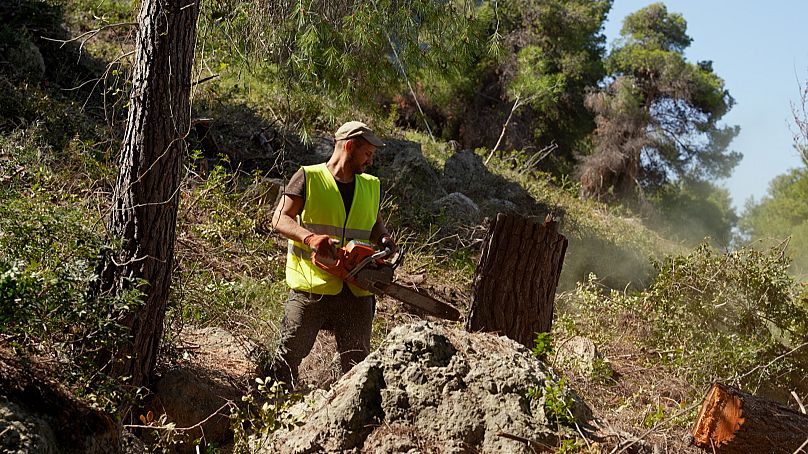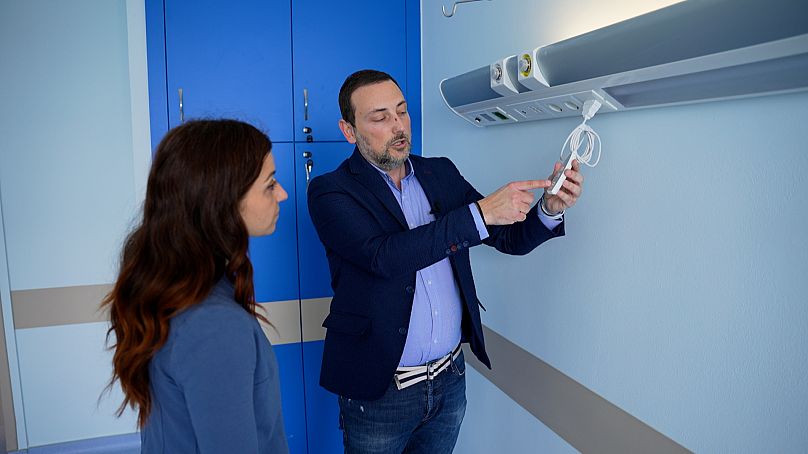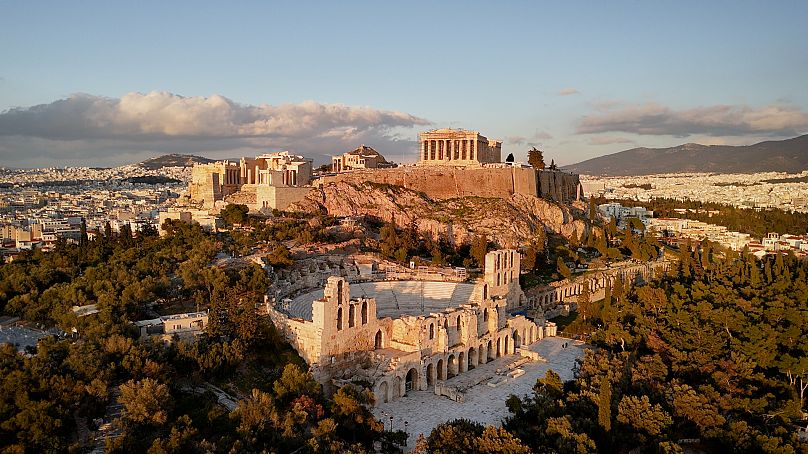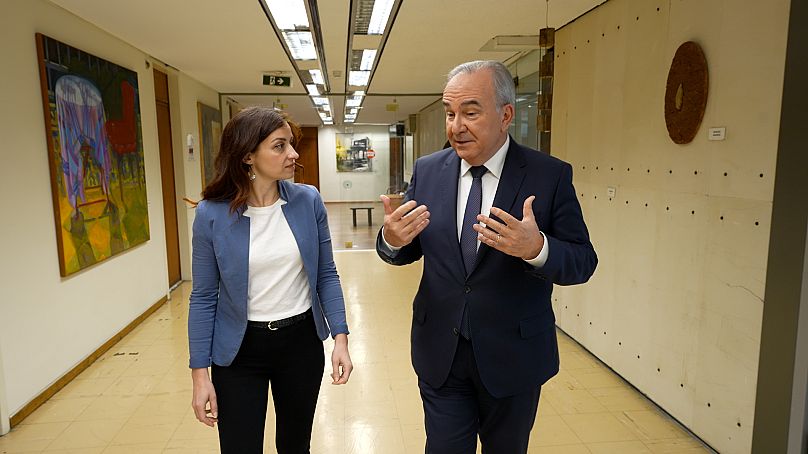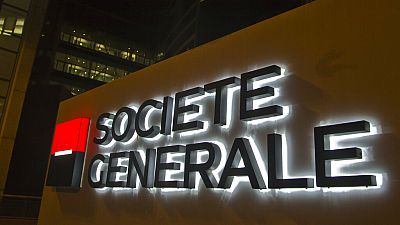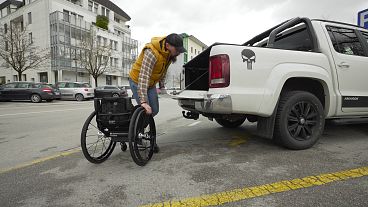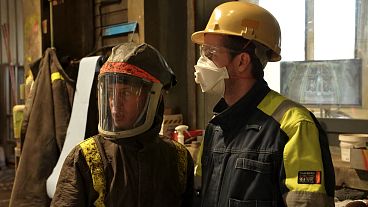Is the European Recovery and Resilience Facility on track to deliver on its promises three years after its launch? Euronews reporter Fanny Gauret travels to Greece for Real Economy to find out.
Managing the climate crisis is one of the major aspects of the European recovery plan for Greece.
A prolonged spell of drought and heat waves in 2023 fuelled one of the worst forest fire seasons the country has ever experienced; the Alexandroupolis and Evros wildfire, which broke out on 19 August razed more than 81,000 hectares alone, 170,000 hectares of land were destroyed across Greece in total.
The Megara Forest, some 60 kilometres northwest of Athens was also hard hit.
"In the last five years, large fires have occurred in the Megara Forest, destroying woodlands, forests, houses, businesses and livestock," Jasmine Georgiou, a forester with a masters in Waste Management, told Euronews.
The Greek AntiNero programme was created to tackle 'mega-fires' by cleaning and maintaining forests, planting slow-burning trees and creating different fire prevention zones.
Georgiou explained that clearing highly flammable scrub and forest debris is necessary to prevent fires from spreading out of control, especially during the summer season.
However public initiatives like these require significant investment to cover the costs of contractors, staff and essential equipment.
"The project's budget is beyond €400 million, this is the largest ever intervention undertaken to tackle this issue in our country, thanks to the resources secured by the Recovery and Resilience Fund," said Giouli Vourna, a project manager for the Hellenic Republic Asset Development Fund.
Measures financed by the RRF are established according to the priorities of each country. Greece has access to €35.9 billion, distributed in grants and loans which will also cover the modernisation of public infrastructure, including healthcare centres.
The road to better health care
The Metaxa Cancer Hospital in Athens is the largest oncology hospital in the Balkans. Director Sarandos Efstathopoulos gave Euronews a tour of the complex which hadn't been renovated since its construction in the 1960s.
"We have renovated all patient rooms, all facilities and toilets, we have added the consoles for the supply of oxygen and a very important call accessory for the nursing staff. Also, a complete reconstruction of the sixth floor and the Emergency Department will follow," Efstathopoulos explained.
"This project cost about €1 million. Definitely, RRF helped a lot by quickly completing these works that are taking place in the more than 80 hospitals as part of the programme, so that the Greek people can access quality medical services," said Evangelos Manolis, another project manager for the Hellenic Republic Development Asset Fund.
According to the Greek recovery plan, 38 per cent of funds will be devoted to climate objectives, 22 per cent to digitalisation and 18 per cent to social projects.
However, Phoebe Koundouri, a professor at Athens University of Economics and Business and chair of the UN SDSN Global Climate Hub, told Euronews that the creation of a favourable fiscal space, more time, and significant reforms are needed if the Greek RRF is to achieve its objectives.
"We've managed to get almost 50 per cent of prepayments and have one-third of the money absorbed into investment. It's an unprecedented absorption rate for Greece. But of course, we definitely need more time for this fiscal space to actually transpose itself into implementable projects. So you need the public sector to really become productive," she warned.
Bright outlook for the years ahead
After a difficult decade, Nikos Papathanasis, Greece's Alternate Minister at the Ministry of Economy and Finance expects the Greek economy to grow 2.9 per cent in 2024 - slightly higher than the European Commission's prediction of 2.3 per cent for 2024 and 2025.
According to Papathanasis, who is also in charge of the RRF funds for Greece, the average growth rate in Europe for 2024 will be 0.8 per cent.
"We expect the RRF to contribute, along with the other European funds, to more than 60 per cent of the growth that we're expecting for 2024... the reforms make our economy more interesting for investments and of course, the investments assist in creating new jobs. And we've reduced unemployment in the last four years from 17.5 per cent to less than 10 per cent."
Moving forward, Papathanasis insisted that the upgrading of healthcare facilities will remain a top priority and that checks are in place to ensure the money is well spent.
"There's national and European auditing, we undergo continuous examination. So, that is the way we ensure that the money goes in the right way."
Finally, Papathanasis added, "RRF is performance-based, it's not a matter of how much money you spend, but on achieving the reforms and hitting those milestones. So it is difficult, but it's more effective. And I think reforms along with investments are more useful for society than projects alone".
For Greece, strategic investments and wise management are opportunities to continue on a positive trajectory and transform a decade of hardship into prosperity.

